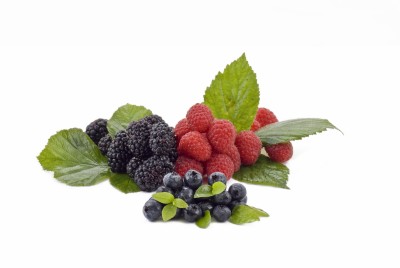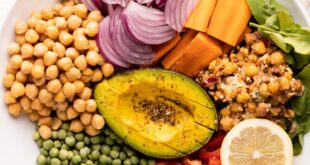Berries just scream summertime! Whether picking them for a pie or cobbler, growing them in your garden, or purchasing from a local market or fruit stand, these plump, juicy fruits are so delicious and good for us.
Are You Kidding?
Scientifically speaking, a berry is defined as “a fleshy fruit produced from a single flower containing one ovary.” By this definition, watermelon, pumpkins, tomatoes, avocados, and cucumbers are considered to be berries, whereas strawberries and raspberries are not! But we’re not going to exclude them from our “berry” healthy article.
Health Benefits
1) Improved Cardiovascular Health – Research has shown improved metabolism of glucose, antioxidant activity, increased HDL (“good”) cholesterol, and decreased LDL (“bad”) cholesterol. Consumption of blueberries which are high in Vitamin A, Vitamin C, and anthocyanin, are thought to be instrumental in preventing strokes.
2) Protection Against Cancer – Fiber, minerals, vitamins and phytochemicals in berries may provide protection against colon cancer. Antioxidants found in berries are also cancer-preventive. Chokeberry and bilberry may inhibit colon cancer cell growth.
3) Treatment of Urinary Tract Infections (UTI’s) – For many years, consumption of cranberries and their juice has been successfully used in the treatment of UTI’s. Regular use has been linked with decreased frequency of UTI’s.
4) Adjunctive Therapy for Peptic Ulcers – Cranberries have shown the ability to inhibit Helicobacter pylori, the bacteria that is often associated with peptic ulcers.
5) Preventive Treatment of Chronic Inflammatory-Related Conditions – Antioxidants protect against oxidative cell damage that can lead to cancer, heart disease, auto-immune disorders, and Alzheimer’s Disease, among others.
What’s In A Berry?
Berries contain a group of antioxidants known as flavonoids which are found in plants and fruits. The largest concentration of flavonoids is in the skin or peel, and they are protective of the fluid within our cells.
One type of flavonoid is an anthocyanin. Berries are rich in these anti-inflammatory components. Studies have shown cellular protection against damage from inflammation. They also produce the rich hues of blues, reds and purples in blackberries, raspberries and blueberries. Though the amount of berries needed to get the desired benefit is not entirely certain, there is no doubt concerning what these little gems can accomplish.
Next Week – To Be Continued
As long as you have no allergy or sensitivity to berries, they will add health and vitality to your cells and your overall general health. Next week, we will specifically look at what black raspberries can do for us.
“I will prevent pests from devouring your crops, and the vines in your fields will not drop their fruit before it is ripe,” says the LORD Almighty.” (Malachi 3:11 / NIV)
God knows your every need and will provide for you. Trust in Him.
Have you ever eaten huckleberries or dewberries? Have you heard of olallieberries? Let us know which berries are your favorites and why!
 The Bottom Line, Ministries Christian News, Articles, & Poetry
The Bottom Line, Ministries Christian News, Articles, & Poetry 




